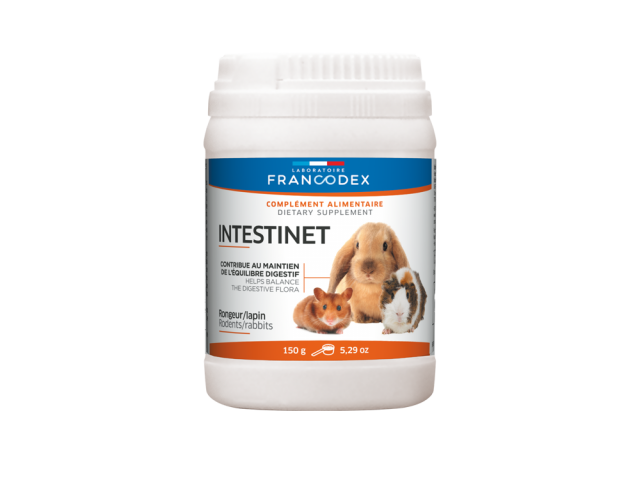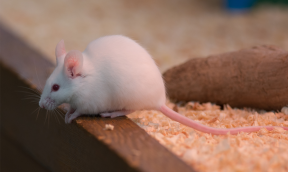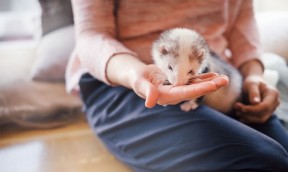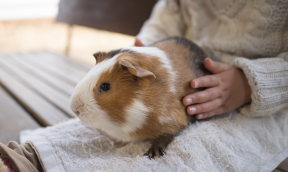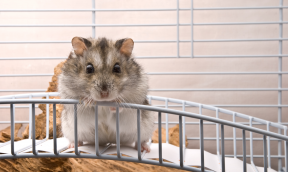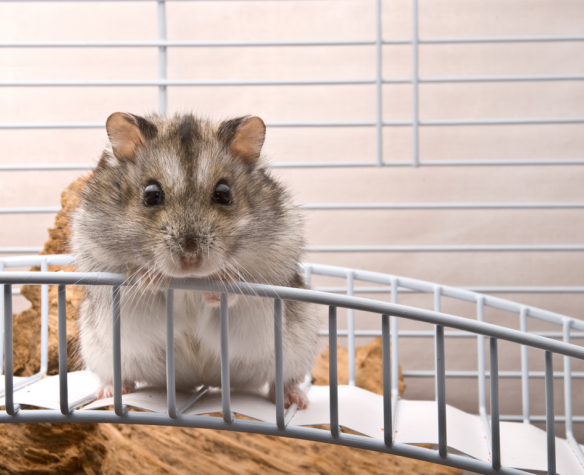
Hamsters
General information
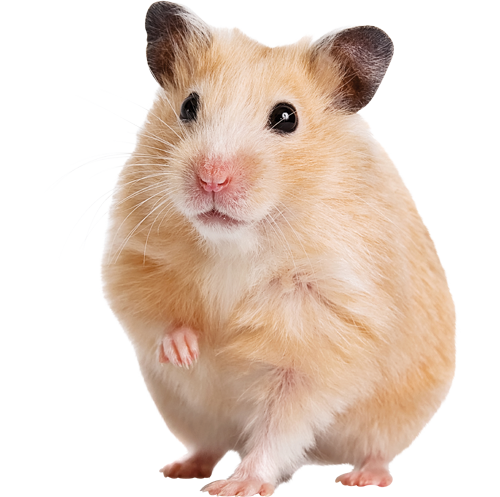
- Classification: Mammal.
- Family: Muridae.
- Diet: Omnivorous rodents.
- Adult weight: 35 to 50 g on average for dwarf hamsters; 120 to 180 g for golden hamsters
- Sexual maturity: 18-23 days in dwarf hamsters, 45 (females) to 65 (males) days in golden hamsters
- Gestation: 20-22 days in dwarf hamsters, and 16 days in golden hamsters (2-8 pups per litter, born hairless and blind)
- Weaning: Approximately 3 weeks.
- Life span: 1-2 years for dwarf hamsters; 2-4 years for golden hamsters
- Period of activity: Nocturnal.
Different types of hamsters exist: dwarf hamsters (winter white dwarf hamsters, Roborovski hamsters and Chinese hamsters), and golden hamsters.
The hamster’s diet
Hamsters are omnivorous rodents. Their basic diet consists of granules or mixes specially designed for hamsters, along with fresh or dried fruit and vegetables as treats, avoiding fruit containing too much sugar. There is no need to feed these rodents hay. However, a protein supplement should be provided, such as mealworms for example. Introduce fresh vegetables gradually to avoid digestive problems. During dietary transition periods, we recommend using Intestinet to support your hamster’s digestive function and gastrointestinal flora.
Also ensure your pet has unrestricted access to fresh clean water.
Environment
Hamster are rather solitary animals and adults can be aggressive with each other. They therefore need to be separated most of the time.
Your hamster’s cage should be positioned in a quiet place, away from draughts. You should provide your pet with clean bedding, along with hiding places and materials to build a nest (cotton, fibres, fabric, etc.), together with objects for climbing, exercise (tubes, platforms, etc.) and burrowing.

